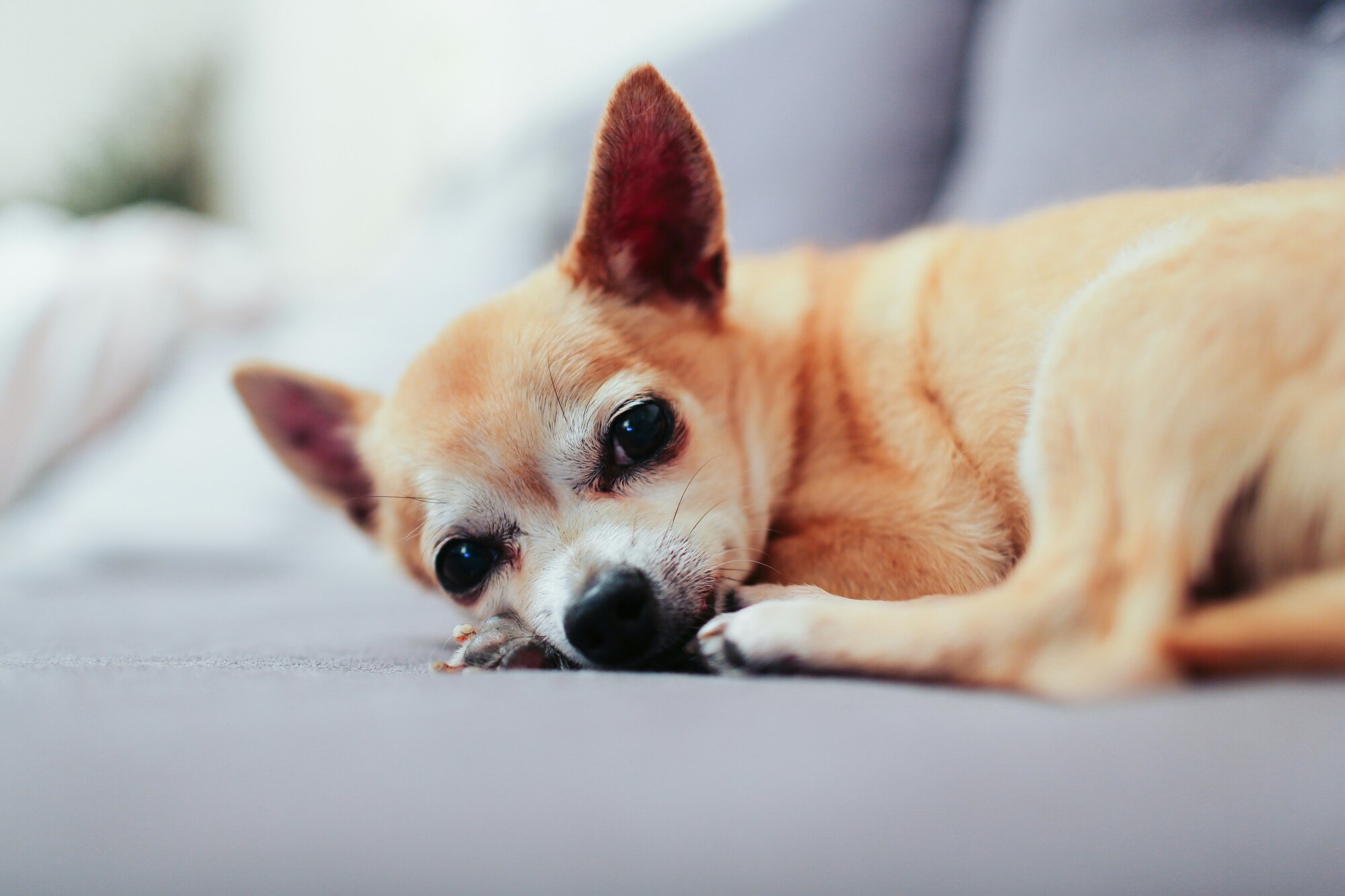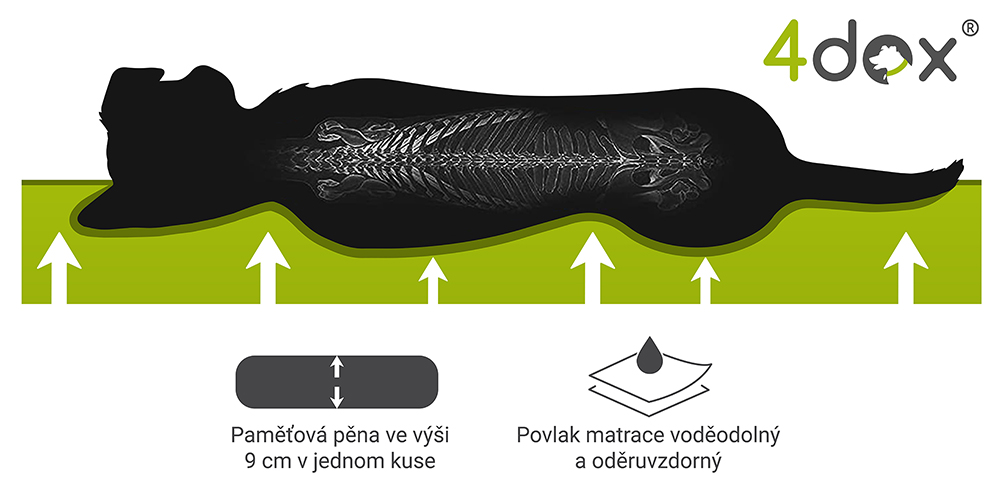We need your consent to the use of individual data so that you can show information about your interests, among other things. Click "OK" to give your consent.
You (cannot) teach an old dog new tricks. But as owners, you always have something to learn, especially with an aging dog, the needs change from day to day. How to treat a senior to the best and what not to forget?
When is a dog old?
They say 1 dog year is like 7 human, but you also have to consider the size of the breed. Bigger dogs simply age faster. The onset of old age is manifested by graying of the face and paws, reluctance to move, longer sleep - an old dog sleeps up to 20 hours a day. It is generally estimated that for small breeds, we talk about seniority around the age of 11, for middle and large breeds it starts around the age of 8, and for giant furries already at the age of 6. But it all depends on the care, genetics, condition and exercise you give the dog.
The organism works differently
The manifestations of old age (as in humans) include a slower metabolism , impaired functions of some "worn out" organs. Furries get fat easily because they simply gain weight due to their greater need for sleep and less willingness to move. Therefore, it is good to adjust their diet so that the joints do not suffer so much from excess weight. Look for kibbles for seniors that have a lower fat content; if you feed raw meat, increase the number of vegetable side dishes up to 40% and monitor the amount of phosphorus.
Also think about treats and check their composition and total amount per day. Treats are a common "gray zone" that is forgotten when losing weight.
When the appetite decreases
The partner may not like it so much anymore, chooses more often or does not finish dinner . It happens in old age because of toothache. Try to discuss their condition (and generally decreasing appetite) at the vet and possibly start brushing the senior's teeth at least every other day. But the pancreas can also be angry.

Take care of the joints
If you haven't used them yet, it's time to start adding them to your dog chondroprotectants (dietary supplements for joints). The partner often does not say that his joints just hurt, especially when the weather is cold or rainy. Maybe he hesitates a little longer when walking up the stairs, sometimes needs help getting into the car, stopped sleeping at the foot of your bed and prefers to lie on the floor. Signals are subtle but irreversible. If you feel that he really doesn't want to walk or it's particularly difficult to get up, don't delay a visit to the vet, who will assess the degree of progressing arthrosis, or advise what medicines might help him.
Tip: 20 hours of sleep a day with sore joints requires a quality bed. Try orthopedic mattresses, on which he will sleep like a baby and relieve his pain. In addition, it will reduce the likelihood of bruises.
Keep moving
Even if your legs get heavy, don't give up regular movement . You don't have to run or cover a route of several kilometers, just steady, systematic walks are enough. Slow movement is also movement. If, even when walking slowly, the partner is panting too much or refuses to walk after just a few meters, do not delay a visit to the veterinary cardiologist. A weakening heart can be strengthened with appropriate drugs, the sooner the better.
Also bet on omega 3 and 6 fatty acids. They improve the condition of the coat, cardiovascular system, mental functions and take care of the joints.
When the disease asks
Unfortunately, with the onset of old age, the word illness is increasingly reported , with which you have not yet had the honor. Even in dogs (as well as in humans), cognitive functions deteriorate, dementia sets in. The dog can often be confused and disoriented. Some develop diabetes, pancreatic disease or kidney or liver problems. Epilepsy, hearing problems, cataracts worsen. Attention! For the sake of their safety, never let hearing-impaired dogs off the leash!
Do not underestimate regular visits to the veterinarian, they will help detect and slow down many signs of aging. At least once a year, you should take your senior dog for a regular comprehensive examination (so-called geriatric examination).
Tip: Lifelong walks on a collar can cause painful changes in the cervical spine. When else than now should you get your partner a perfectly fitting harness! The best thing to do is to have your initials sewn onto it so that the old man doesn't wander around the world for a long time in the event of an accident.
Leave everything as it was
Important tip - leave the old hairy as it is old. Every change significantly disturbs his mental well-being and peace. Moving, new environment, new habits, new training methods - that's not for them anymore. Sensory stimuli do help train their brains, but big changes tend to make them worse.
A couple of final tips - look for golden paste, which is a mixture of turmeric, a pinch of pepper and cold-pressed oil. CBD, boswellia serrata, MSM or even dragon's blood can also relieve your dog's joint pain. It is good to supplement zinc in old dogs.
If your senior hasn't lost his appetite for exercise, be sure to keep exercising lightly with him to keep his brain "fresh". Include sniffing and sniffing games too.
Regenerative clothes can help in regeneration. Treat him to the care of a physiotherapist.


 Cookie - Settings
Cookie - Settings
